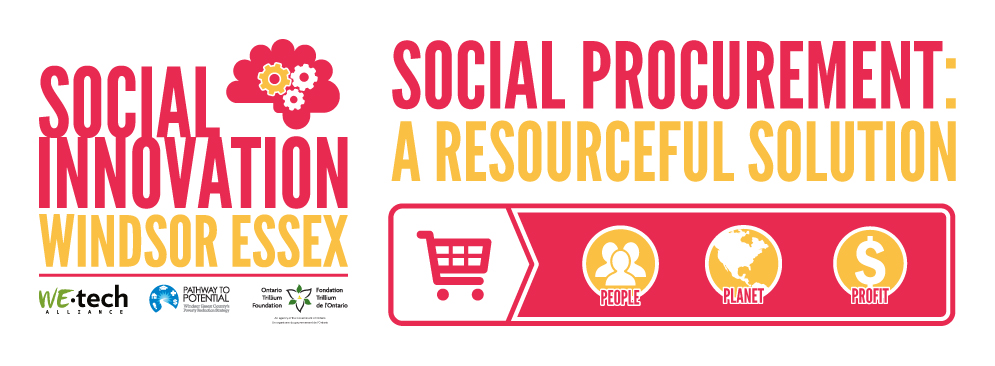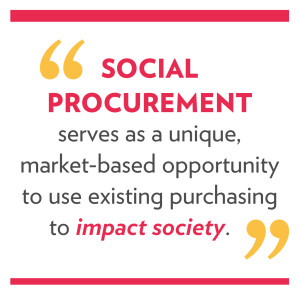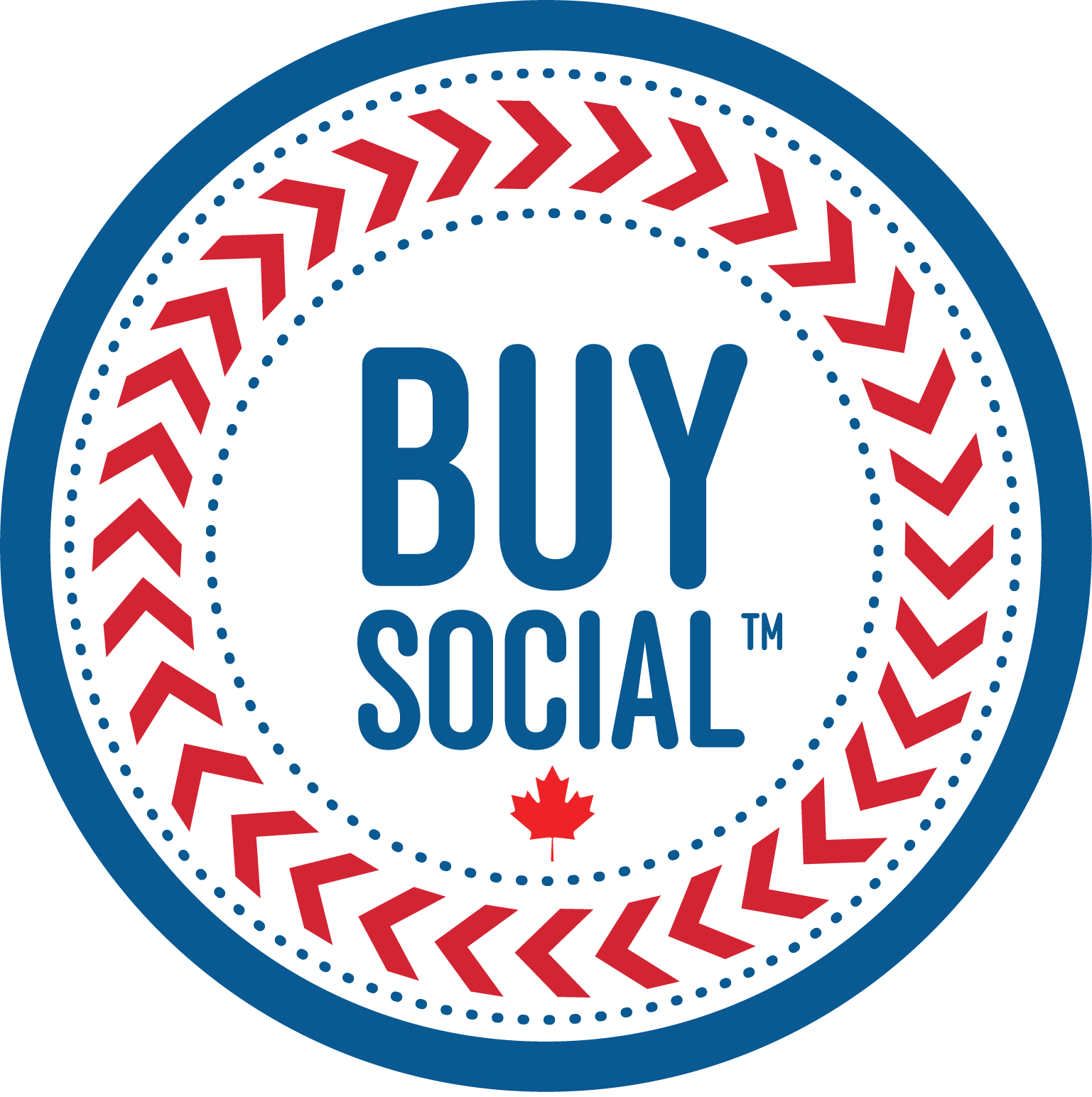
October 4, 2016 – by Alexandra Lucier
Every year, the City of Toronto procures $1.8 billion in goods and services from outside suppliers. Innovative as they may seem, if you think principles such as outsourcing, public-private partnerships and risk management are new, think again. Trading goods and services goes back as early as Ancient Rome, as a means to share resources, solve scarcity issues and generate value. In the 19th and 20th centuries, businesses evolved to place emphasis on economic value and more complex supply chains. Priorities for purchasers became meeting product quality requirements at the lowest possible price, as well as avoiding risk for the company.
Over the past four decades, other influences have become a part of the decision-making process for purchasers. In the 1970s, the Environmental Movement jump-started the enduring trend of environmental considerations as a requirement for procurement processes. Then, in the 1990s, Corporate Social Responsibility (CSR) together with escalating social needs demanded the use of broader “sustainability” criteria in corporate and government purchasing, as well as the prioritizing of social impact by emerging innovative businesses. These businesses were referred to as “social enterprises”, and served as the foundation for social procurement.
 In May of this year, Toronto’s city council passed The Social Procurement Program, the purpose of which is to make it easier for businesses and non-profits with mandates for social good to land some of those contracts, as well as to connect marginalized people to employment associated with meeting the needs of the community. Many initiatives are already underway in the city, including Out of this World Café and Catering, a unique social enterprise employing people with mental illness at two downtown Toronto locations; KLINK Coffee, a coffee distribution organization which trains and employs people recently released from prison; and Paintbox Catering and Bistro, a restaurant on a mission to revitalize its neighbourhood by hiring residents in the surrounding social housing.
In May of this year, Toronto’s city council passed The Social Procurement Program, the purpose of which is to make it easier for businesses and non-profits with mandates for social good to land some of those contracts, as well as to connect marginalized people to employment associated with meeting the needs of the community. Many initiatives are already underway in the city, including Out of this World Café and Catering, a unique social enterprise employing people with mental illness at two downtown Toronto locations; KLINK Coffee, a coffee distribution organization which trains and employs people recently released from prison; and Paintbox Catering and Bistro, a restaurant on a mission to revitalize its neighbourhood by hiring residents in the surrounding social housing.
If successful, the benefit of social procurement is to address complex social issues with existing purchasing. Social procurement encourages the use of the procurement process for goods and services with the end-goal of advancing positive economic, workforce, and social development. It ensures that decisions in public-sector purchasing are made with two bottom lines in mind: to purchase the best possible services and products at the most competitive prices, and to leverage limited public resources to achieve strategic city-building outcomes.
The City of Toronto has a long history of using procurement to achieve strategic social development goals. The following procurement-related policies serve as direct examples:
- Fair Wage (1893)
- Declaration of Non-Discrimination (1998)
- Environmentally Responsible Procurement Policy (1999)
- Purchase of Products Manufactured in Factories where Children Are Used as Slave Labour or Other Exploitive Circumstances Which Impede Child Development (2000)
- Live Animal Testing (2000)
- Purchase of Garments and Other Apparel from Responsible Manufacturers (No Sweatshop) (2006)
These and other initiatives demonstrate the innovative ways in which social procurement serves as a unique, market-based opportunity to use existing purchasing to impact society. The recent Federal Budget recognized that government alone cannot solve the complex social issues facing our communities, nor can any single sector, private or non-profit. However, blending business values with social impact objectives through social procurement may offer some hope.
The Buy Social Canada Program
 Buy Social Canada was created to encourage social value purchasing across the community, private and public sectors, and to provide an external social enterprise certification program. The Buy Social website includes a social enterprise directory, and a list of Certified Buy Social Purchasers and Suppliers.
Buy Social Canada was created to encourage social value purchasing across the community, private and public sectors, and to provide an external social enterprise certification program. The Buy Social website includes a social enterprise directory, and a list of Certified Buy Social Purchasers and Suppliers.
For more information about our initiatives, or how we can help, please contact:
Cathy Mombourquette
Director of Social Innovation
226.773.2816
Join the Social Innovation conversation online using #SocInn #YQG



